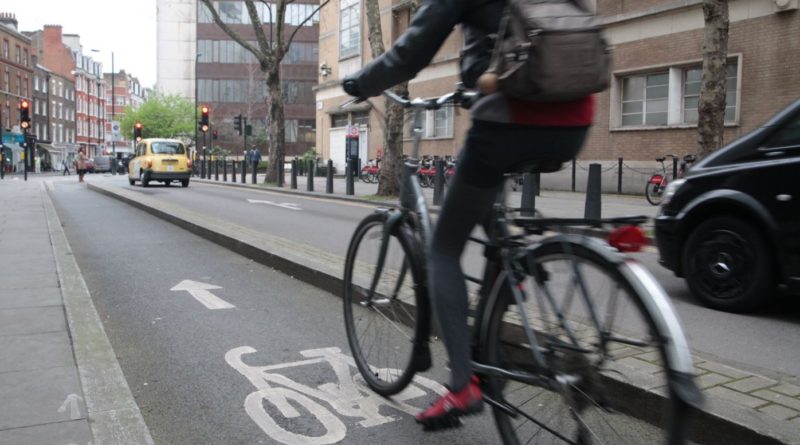Cycling UK charity prepares for legal challenges against “unreasonable” removal of bike lanes
Cycling UK has announced that through its Cyclists’ Defence Fund, it is seeking legal advice about whether councils’ decisions to remove schemes designed to promote walking and cycling are “unreasonable”.
This follows news of the Royal Borough of Kensington and Chelsea’s removal of a well-used cycle lane on High Street Kensington in London last week citing the lanes caused congestion. According to BetterStreets4KC chair Justin Abbott “Levels of congestion were unaffected by the cycle scheme.”
Cycling UK is also alarmed by West Sussex Council’s plans to remove a popular cycle lane introduced during lockdown along Upper Shoreham Road in Shoreham.
This cycle lane recently featured in a short film produced by the Department for Transport, showing the benefits cycle lanes can bring to local communities. Cycling UK has written to the council requesting a pause in these plans, and a clarification of the process which led to this decision.
The national charity is concerned that the removal of cycle lanes is being done without adequate evaluation of their benefits, and without sufficient time to conduct effective trials.
Duncan Dollimore, Cycling UK’s head of campaigns said: “Cycling UK is alarmed that decisions some councils have made in recent weeks, ripping out cycle lanes, have been knee jerk responses to objections from a vocal minority rather than upon consideration of the evidence and benefits of the schemes.”
Recent YouGov polling commissioned by Cycling UK in November has shown more than half of the UK’s population (56%) supports wider roll out of government schemes to encourage more cycling and walking, while only a fifth (19%) opposes them.
“Separated cycle lanes can carry more people in less space, and reduce congestion,” said Dollimore. “They are good for local businesses, with people cycling and walking into town centres staying there longer and spending more money; and the evidence shows that if you build them, people will use them.
“But changing engrained travel habits doesn’t always happen overnight, so when councils introduce temporary cycle lanes they need to leave them in place for long enough to carry out an effective trial. ‘Who shouts loudest’ should not be the basis of their evaluation – and before any drastic action is taken to scrap new bike lanes.”
Upon receipt of legal advice, Cycling UK will consider the possibility of legal action where cycle lanes that were working for people and communities have been removed either unreasonably or where the proper process has not been followed.
Since May 2020, through the Active Travel Fund the Department for Transport has provided £220 million to councils in England to introduce new cycling and walking facilities. This funding is to help local authorities relieve pressure on public transport, increase opportunities for social distancing and create sustainable alternatives to shorter journeys, and is part of the Government’s promised £2bn for cycling and walking over the next five years.
£27.4 billion is being invested over the next five years through Highways England’s roads plan to ensure the road network is fit for the future and safe, reliable and efficient for drivers and businesses.



